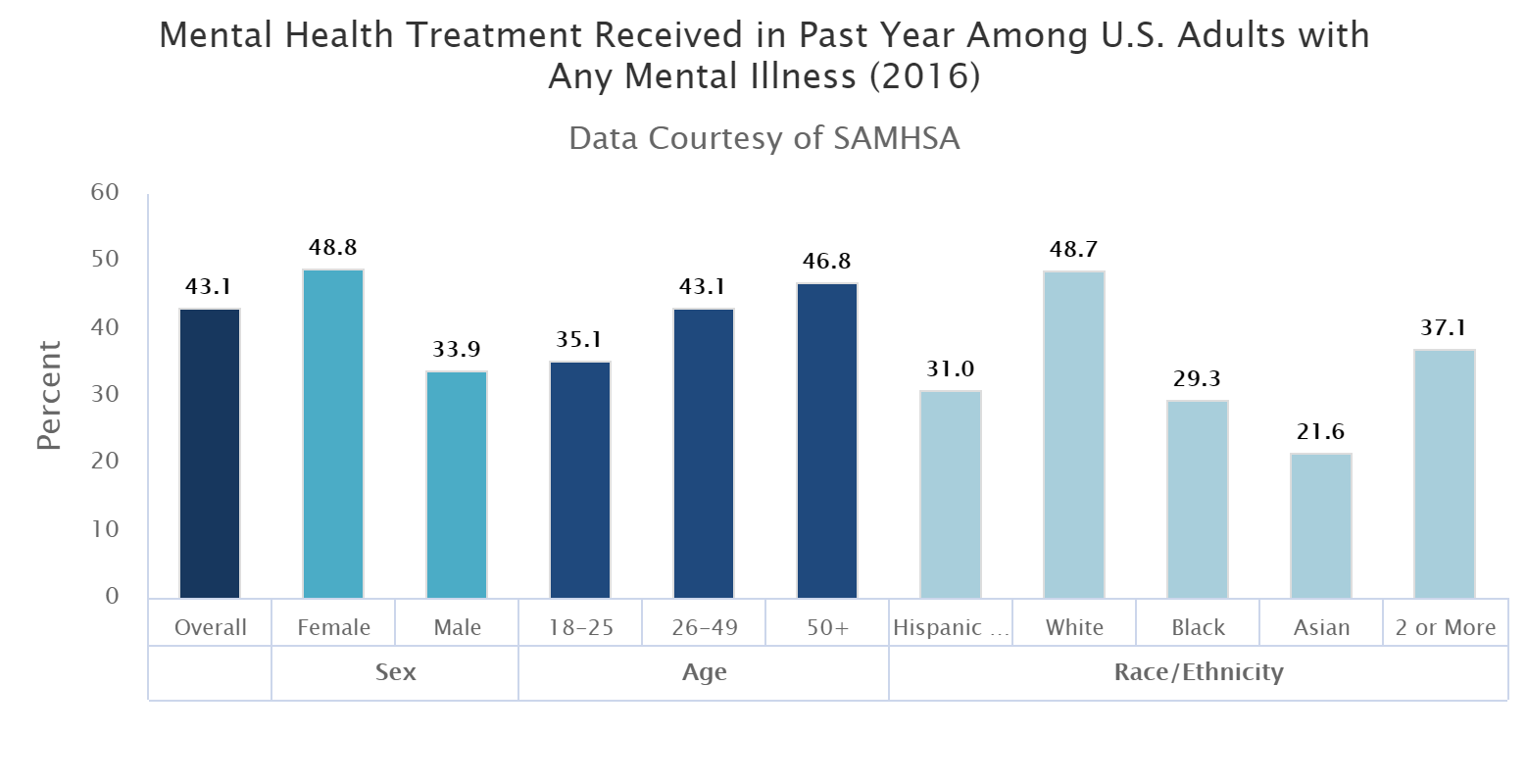Written by: Daniel Hauschild, Psy. D., HSPP
You don’t have to be crazy to see a therapist. During your life-time, you have a 55% chance of being diagnosed with some type of mental disorder. Yes, over half the population will have the need for behavioral services at one point or another in their lives.
As the stigma surrounding mental health treatment continues to reduce, people are seeking professional services with increasing frequency.

Source: National Institute of Mental Health (https://www.nimh.nih.gov/health/statistics/mental-illness.shtml)
Avance Care’s therapists spend most of their time assisting patients with routine life experiences from work stress and divorce, to anxiety and depression. Avance Care has incorporated behavioral services into the medical office setting because this makes such services more accessible to a larger portion of the population. Research increasingly demonstrates that patients have better emotional and physical health if they receive coordinated behavioral and medical care.
A variety of sources are reporting high frequencies of many types of behavioral and emotional concerns.
The Skimm’s readers self-report having these feelings weekly or often…
58% feel concerned about their eating habits/weight
37% say they’re constantly worried, anxious
30% feel sad or down
16% say they’re troubled by traumatic events
10% experience mood swings from very high to very low
6% have difficulty controlling substance use
Although the causes of the increasing rate of mental health problems are complicated, experts have some of the following factors as recently contributing to these trends:
Perfectionism…younger people have really high standards for themselves- and lots of self-criticism. Some of it’s self-imposed. Some of it’s coming from social pressures. Speaking of… Social media…it’s not helping. Instagram is not real life. Scrolling through your feed- and comparing yourself to others- has been linked to depression. External conditions…mental illness can be tied to things ranging from stress at work to your socioeconomic status. Experience with gender-based violence may also help explain why women are more likely than men to experience depression and anxiety. Physical health…your physical and mental health are related. Researchers think what you eat could impact how you feel. Meanwhile, eating disorders– an especially deadly mental health illness- are still on the rise.
Paragraph and infromation taken from the skim report at: https://theskimm.com/skimm-guides/mental-health-basics
If you find yourself to be struggling to cope with current sources of stress in your life, we encourage you to reach out to your primary care provider. This is a great place to start, as medical causes for your symptoms can be ruled out and you can be referred to professional resources for appropriate treatment.
References:
https://www.nimh.nih.gov/health/statistics/mental-illness.shtml
https://theskimm.com/skimm-guides/mental-health-basics
https://www.cbsnews.com/news/the-hidden-epidemic-of-perfectionism-in-millennials/
https://www.theguardian.com/technology/2017/dec/15/facebook-mental-health-psychology-social-media
http://www.who.int/mental_health/prevention/genderwomen/en/
https://www.nytimes.com/2017/12/03/us/in-a-deadly-obsession-food-is-the-enemy.html
https://www.theguardian.com/society/2017/jul/31/eating-disorders-in-men-rise-by-70-in-nhs-figures
